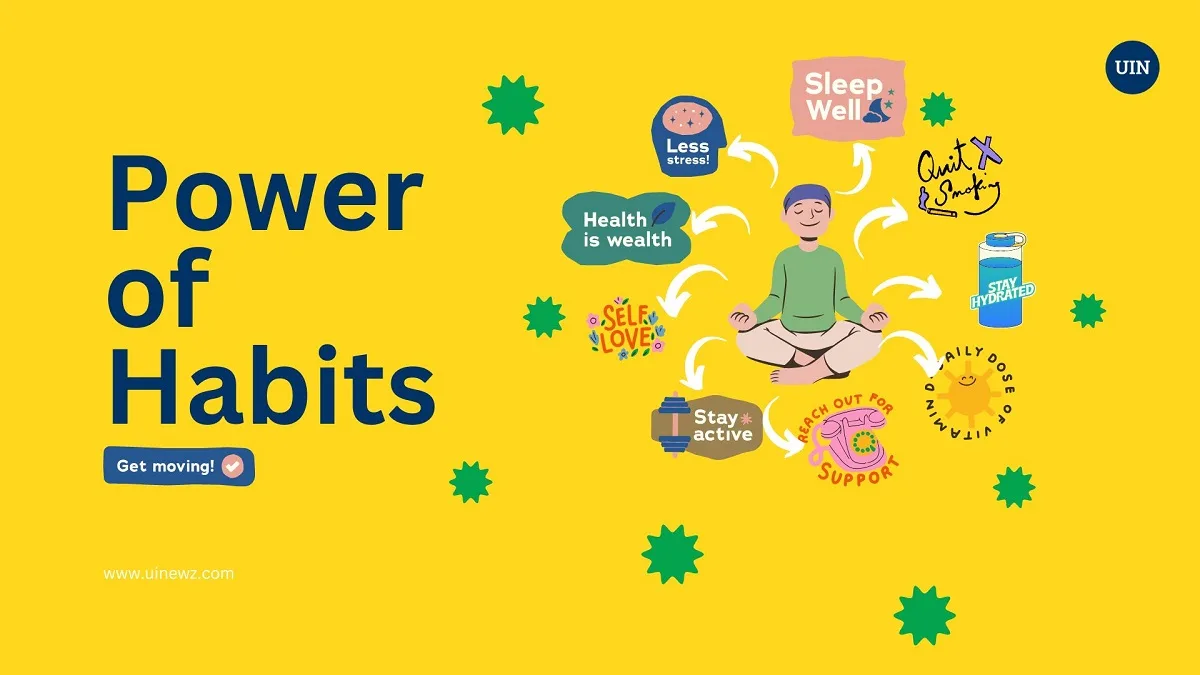
The Power of Habits: How Unhealthy Habits Impact Our Lives and How to Break Free
Habits are the invisible threads that weave through the fabric of our daily lives, shaping our actions, thoughts, and ultimately, our destinies. While some habits can be positive and lead to personal growth and success, others can be detrimental, fostering an unhealthy lifestyle that affects both our physical and mental well-being. In this article, we explore the profound impact of unhealthy habits on people’s lives and offer practical strategies to break free from their grip.
Table of Contents
The Role of Habits in Our Lives
Habits are deeply ingrained routines and behaviours that we repeat regularly with little or no conscious thought. They serve as mental shortcuts, allowing our brains to conserve energy and streamline decision-making processes. Habits can be either constructive or destructive, depending on whether they contribute to our overall well-being or hinder it.
Unhealthy Habits and Their Consequences
1. Sedentary Lifestyle and Physical Health
One of the most prevalent unhealthy habits in modern society is leading a sedentary lifestyle. Spending long hours sitting at a desk, watching TV, or using electronic devices has become the norm for many people. Lack of physical activity is associated with numerous health issues, including obesity, cardiovascular diseases, and musculoskeletal problems. Regular exercise is essential for maintaining a healthy weight, improving cardiovascular health, and reducing the risk of chronic conditions.
2. Poor Dietary Choices and Nutrition
Unhealthy eating habits can significantly impact our health and well-being. Consuming excessive amounts of processed foods, sugary snacks, and high-calorie beverages contributes to weight gain and increases the risk of developing conditions like type 2 diabetes and hypertension. Additionally, a poor diet lacking essential nutrients can lead to deficiencies, affecting immune function, energy levels, and cognitive abilities.
3. Inadequate Sleep Patterns
Sleep is crucial for overall health, allowing the body to rest, repair, and rejuvenate. Unfortunately, many people develop unhealthy sleep patterns due to busy lifestyles, excessive screen time, or stress. Chronic sleep deprivation can lead to impaired cognitive function, weakened immune systems, mood disturbances, and an increased risk of accidents.
4. Smoking and Substance Abuse
Smoking and substance abuse are destructive habits that can have severe consequences on health. Tobacco usage stands as a primary contributor to avoidable illnesses, encompassing lung cancer, heart ailments, and respiratory disorders. Likewise, substance abuse, including alcohol and illicit drugs, can lead to addiction, liver damage, mental health issues, and impaired judgment.
5. Chronic Stress and Mental Health
Unhealthy habits, such as excessive workload, constant multitasking, and poor time management, can lead to chronic stress. Prolonged stress can negatively impact mental health, causing anxiety, depression, and burnout. Moreover, it can weaken the immune system, making individuals more susceptible to infections and diseases.
6. Lack of Hydration
Many people underestimate the importance of staying hydrated. Failing to drink enough water can lead to dehydration, which affects physical and cognitive functions. Dehydration can result in headaches, fatigue, dizziness, and impaired concentration. It is essential to maintain proper hydration to support the body’s various physiological processes.
The Habit Loop and Breaking Unhealthy Patterns
Understanding the habit loop is crucial for breaking free from unhealthy behaviours. The habit loop comprises three elements: the cue, the routine, and the reward. Identifying these elements helps us recognize triggers for unhealthy habits and replace them with more beneficial routines.
- Identify Triggers: Pay attention to the situations, emotions, or environments that trigger your unhealthy habits. For example, stress might prompt overeating or smoking.
- Replace with Healthy Alternatives: Once you identify triggers, find healthier ways to respond to them. For instance, instead of reaching for junk food when stressed, consider practising deep breathing exercises or going for a walk.
- Consistency and Patience: Breaking a habit takes time and effort. Be patient with yourself and consistently practice healthier alternatives until they become new, positive habits.
Building Healthy Habits
Replacing unhealthy habits with beneficial ones is key to improving overall well-being.
- Regular Exercise: Incorporate physical activity into your daily routine. Find exercises you enjoy to make it more sustainable and enjoyable.
- Balanced Diet: Adopt a well-balanced diet rich in fruits, vegetables, whole grains, lean proteins, and healthy fats.
- Prioritize Sleep: Set a consistent sleep schedule and create a bedtime routine to improve the quality and duration of your sleep.
- Seek Support: Share your goals with friends, family, or join support groups to stay accountable and motivated during your habit-changing journey.
- Mindfulness and Stress Reduction: Practice mindfulness techniques, meditation, or yoga to manage stress effectively.
Unhealthy habits have a profound impact on our lives, affecting both our physical and mental well-being. Recognizing the habit loop and diligently working towards replacing destructive routines with healthier alternatives is the path to a happier and more fulfilling life.
Embrace the power of positive habits, and with patience and determination, you can break free from the clutches of unhealthy patterns, paving the way for a healthier, more vibrant future. Remember, small changes today can lead to significant improvements in our well-being tomorrow.






